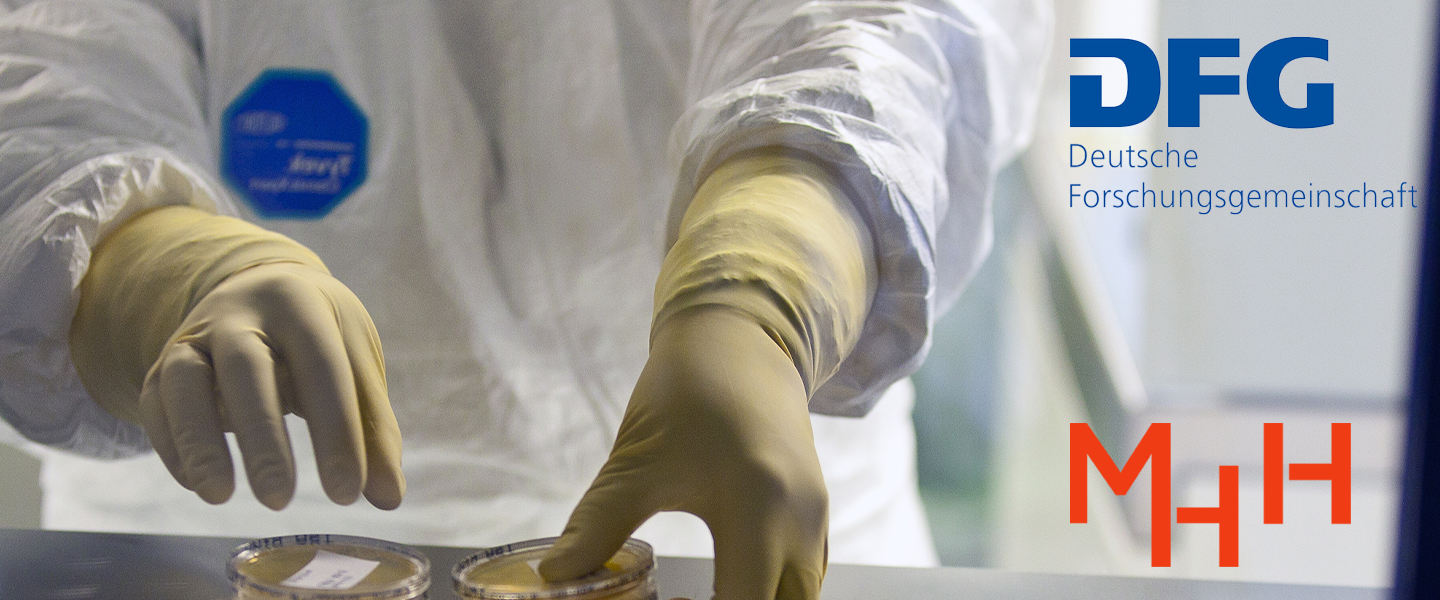Funded by the German Research Foundation (DFG)
Department / Institute: Institute of Virology
Clinical and in vitro data show that SARS-CoV-2 and other coronaviruses can infect and replicate in neurons. A large percentage of COVID-19 patients suffer neurological symptoms including loss of taste, of smell, acute cerebrovascular disease, encephalopathy, seizure and lack of unconscious breathing. Some of these symptoms suggest that neurons of the peripheral nervous system are affected in COVID-19. The role of the neuronal intrinsic and innate immune response against SARS-CoV-2 is not well characterized and may contribute to pathogenesis. We will investigate the outcome of SARS-CoV-2 infection of iPSC-derived human peripheral neurons available in the laboratory.
The two main objectives of this project are:
(i) To investigate SARS-CoV-2 replication and transport in human peripheral neurons.
(ii) To determine the pathogenicity of SARS-CoV-2 infection of peripheral neurons.
Our experiments will provide relevant information on the neurotropism of SARS-CoV-2 that might explain some of the neurological symptoms observed during COVID-19.
Department / Institute: Institute for Epidemiology, Social Medicine and Health Systems Research
This project is an add-on within the DFG research group FOR2959 "Health Literacy in Early Childhood Allergy Prevention". In the supplementary project, parents of children aged up to 3 years will be interviewed about their recent use of and experiences with health information on COVID-19. The goal of this qualitative study is to comprehensively survey approaches, preferences, challenges, and barriers to finding and using appropriate digital and non-digital sources, as the development and dissemination of health information to date - particularly digitally - is often unclear as to how far it meets the needs of target groups. It will also address who or what parents trust when using COVID-19-specific health information and on what basis they make decisions, for example, when implementing protective measures. Due to existing contact restrictions, parents will be interviewed individually and by telephone, the results of the survey will be cumulated and recommendations for (future) target group-specific communication will be developed.
10 Projects within the scope of the RESIST Cluster of Excellence are dedicated to COVID-19 / SARS-CoV-2.
Projekt leaders are: Prof. Dr. Thomas F. Schulz, Prof. Dr. Gisa Gerold, Prof. Dr. Thomas Pietschmann, Prof. Dr. Gerard Krause, Prof. Dr. Jens Bosse, Prof. Dr. Abel Viejo Borbolla, Prof. Dr. Bodo Grimbacher, Prof. Dr. Francois Routier, Prof. Dr. Gesine Hansen, Dr. Yvonne Kemmling, Dr. Jens Bohne.
More information you can find at: www.resist-cluster.de/en
Department / Institute: Institut für Ethik, Geschichte und Philosophie der Medizin
In the 1990s as the flip side of a new phase of globalization, the perception of viruses as a threat to health, the economy, prosperity, and security increased. The pandemic plans that have been advanced since the 1990s were directed at a field of action founded in epidemiology in a complex future contingent on numerous uncertainties. Hence both, the WHO as well as responsible authorities in the Federal Republic of Germany attempted to plan for a pandemic future. Those plans were produced in communication and negotiation processes between health experts, supranational institutions, national actors, and civil societies. The two projects on the WHO and the FRG will consider these processes between “global” and “national”, “public” and “private”, nation and individual. What resources the plans were based on? What public health measures were projected? What perspectives were included or excluded? What social segments were taken into account? And how pandemic planning and preparedness was communicated in public?
Collaborative Research Centre (SFB) 900
Department / Institute: Institute of Transfusion Medicine and Transplant Engineering (ITT)
In well-characterized large cohorts of actively infected and recovered COVID-19 patients, a comprehensive profiling of the humoral and cellular immunity against structural and non-structural SARS-CoV-2 proteins as well as endemic coronaviruses is performed. The cellular immune profiling includes HLA data, comprehensive phenotyping of innate and adoptive immune cells as well as inhibitory and migration-associated check-point molecules which are linked to SARS-CoV-2-induced cell death mechanisms (apoptosis/pyroptosis). The impact of the inflammatory environment on effector cell functionality is investigated in detail by multiplex analysis. Multi-omics data on the expression profile and phenotypes of SARS-CoV-2-specific and cross-reactive immune cells will be integrated to identify possible regulators that can determine the protection against COVID-19 and the prediction of the disease severity. This data on innate and acquired humoral and cellular immunity provides a valuable source for vaccine design and will facilitate our development of adoptive immunotherapies of COVID-19.
